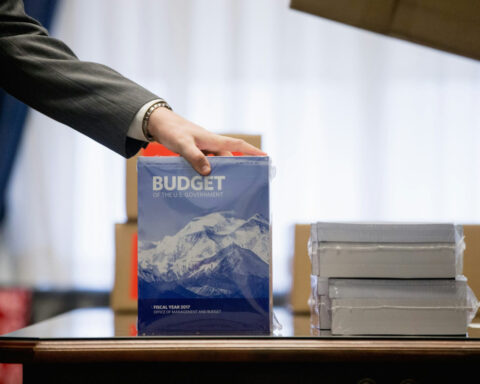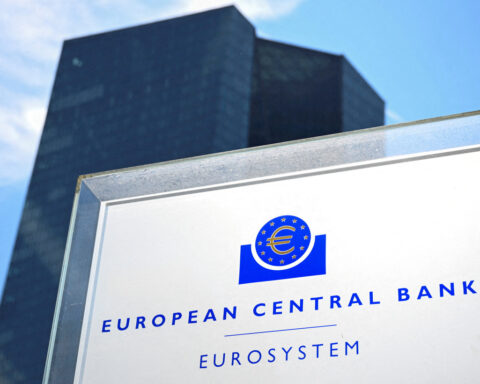By Tom Sims and Christian Kraemer
FRANKFURT (Reuters) -A top German prosecutor who led a years-long effort to crack down on a giant tax fraud vowed on Tuesday in her new role as an activist to combat the influence of lobbyists and seek the return of 28 billion euros ($31 billion) in taxes.
The effort comes as Germany, Europe's largest economy, struggles to fill a hole in its budget and tries to counter criticism for failing to do enough to fight financial crime.
For much of the past decade, Anne Brorhilker was the most prominent prosecutor pursuing so-called "cum-ex" trading, illegal schemes that were rife during the financial crisis and were estimated to have stripped state coffers of billions. Her work led to jail sentences and fines.
In June, Brorhilker made the switch to Finanzwende, a Berlin-based consumer advocacy group, a move that she says came at a personal financial cost but allowed her to speak more freely.
In her first press conference since leaving the Cologne prosecutor's office, Brorhilker said a core problem in Germany was the "huge influence of the financial lobby".
She blamed special-interest groups, with their "huge budgets and large offices with a view of parliament", for failures in punishing alleged tax crimes.
"Why the hell don't we use this opportunity to get the money back? Basically, the only explanation is that the financial lobbyists are really good at what they do," she said.
Deutsche Kreditwirtschaft, an umbrella organisation that lobbies for German finance, did not respond to a request for comment. The industry says it plays a key role in keeping the economy functioning.
Germany's finance ministry said the fight against tax evasion and tax avoidance was "of high priority" but noted that much of the responsibility rested with German states.
Finanzwende itself is registered lobby, but its revenue from membership dues is a fraction of that of top bank lobbies.
Brorhilker made her name jailing bankers and winning fines for cum-ex trading, in which banks and investors would swiftly trade shares of companies around their dividend payout day, blurring stock ownership and allowing multiple parties to falsely reclaim tax rebates on dividends.
A similar scheme resulted in 28 billion euros in losses for state coffers, Finanzwende said.
($1 = 0.9173 euros)
(Reporting by Tom Sims and Christian Kraemer, Editing by Louise Heavens and Mark Potter)

 Joe Biden’s record on science and tech: Investments and regulation for vaccines, broadband, microchips and AI
Joe Biden’s record on science and tech: Investments and regulation for vaccines, broadband, microchips and AI
 Meta shift from fact-checking to crowdsourcing spotlights competing approaches in fight against misinformation and hate speech
Meta shift from fact-checking to crowdsourcing spotlights competing approaches in fight against misinformation and hate speech
 Fire tornadoes are a risk under California's extreme wildfire conditions
Fire tornadoes are a risk under California's extreme wildfire conditions
 In eyeing Greenland, Trump is echoing long-held American designs on the Arctic expanse
In eyeing Greenland, Trump is echoing long-held American designs on the Arctic expanse
 78 dead at abandoned South Africa gold mine that was scene of a standoff. Toll is expected to rise
78 dead at abandoned South Africa gold mine that was scene of a standoff. Toll is expected to rise
 Poland's leader accuses Russia of planning acts of sabotage against 'airlines around the world'
Poland's leader accuses Russia of planning acts of sabotage against 'airlines around the world'
 Jayden Daniels accomplishes a feat last done by Slinging Sammy Baugh in 1937
Jayden Daniels accomplishes a feat last done by Slinging Sammy Baugh in 1937
 Wildfires latest: A final round of dangerous fire weather and dry conditions is in the forecast
Wildfires latest: A final round of dangerous fire weather and dry conditions is in the forecast
 Kamala Harris memes questioning her cultural background highlight Americans’ contradictions with race
Kamala Harris memes questioning her cultural background highlight Americans’ contradictions with race








